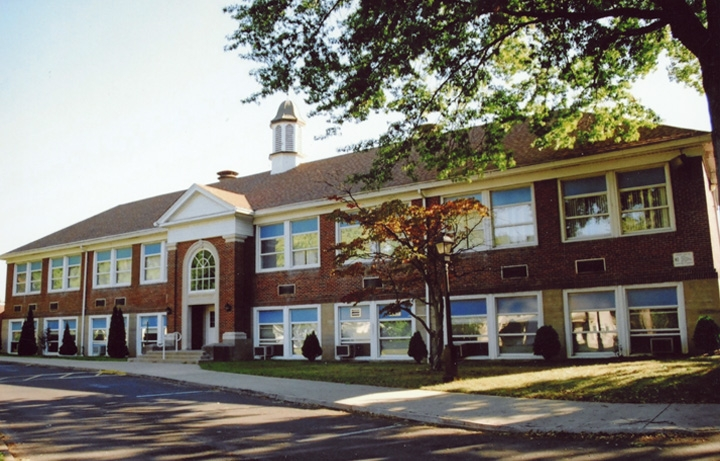Parent Alleges Pennsbury Officials’ DEI Data is Wrong

After crunching the data, a Pennsbury School District parent showed the school board and administrators what he believed were unassailable facts proving the district’s Diversity, Equity, and Inclusion (DEI) policies are not working.
Tim Daly, who has been thrown out of the school board meeting in the past and also won a First Amendment court case against the district, spoke at an Aug. 17 meeting while police officers guarded the room.
“I have been focused on getting you guys to fix the DEI program,” said Daly, a marketing executive who holds an MBA.
The district was fined $719,000 by the state for the last two years, and a professor was brought in to research the issues and get the district back on track. The Pennsylvania Department of Education (PDE) found Pennsbury was found to have placed 71 percent more boys than girls in special education and suspended 210 percent more Black students than pupils in other ethnic groups. Also, many more Asian students were enrolled in advanced placement courses than members of other ethnic groups.
“Your emails show Dr. (Cherrissa) Gibson and Miss (Regina) Rausch hid the data from (Superintendent) Tom Smith for six to eight weeks until the PDE demanded a meeting with Mr. Smith,” said Daly, who received numerous district emails through right-to-know requests. Gibson is the HR director and runs the DEI program. Rausch is the director of special education.
Daly, of Lower Makefield, looked at the charts that Edward Fergus Ph.D., the Rutgers professor, and his team that was hired by the district to comply with PDE penalties and realized something was amiss. The Fergus team will be paid $359,000 over three years.
He asked the district for the raw data and analyzed it once he obtained it.
“Dr. Smith’s staff manipulated and changed the ethnicity status of all the students and turned kids of mixed race with one Black parent to Black. And Latinos that were Black turned to Black. And then you found that the Asian kids were making the mixed-race kids look like they behaved too (well), so you moved that, too. I caught that,” Daly told the board.
“This is what’s posted at PDE,” said Daly. “So, you guys delivered fraudulent data to Dr. Fergus. And Dr. Smith acknowledged the error and said, ‘Mr. Daly, I’m going to fix it.’ And from April to June, the back-and-forth delays went on and on,” Daly said.
He asked for the raw data, and officials stalled. When he finally received it, “it was all false again.” After threatening to complain to PDE, Daly said, “Magically, there were the numbers.”
Daly said he began to look into this topic because of his daughter.
“My daughter told me back in February there is rampant discrimination against children of color in our school district,” said Daly. “And that White boys get away with sexually assaulting girls in the hallways on a daily basis, and if a Black boy did it, basically, he’d be in suspension.”
“So, I just couldn’t believe it; I couldn’t believe what my daughter was saying, so I asked for the numbers,” Daly said. “So, after $1.3 million in expenditures, we have seen a 7.8 percent reduction in disciplinary incidents. But when we dig into the numbers, what we find out is that it’s driven by a 14.9 percent reduction in White student discipline, while at the same time, people of color students have an increase in their disciplinary incidents by 3.6 percent.”
“And where the numbers come in is that we had a modest, stagnant decline on Black students of 1.9 percent, a modest decline of 2.3 on mixed race, but a 9 percent increase against Hispanics and 5 percent against Asians,” said Daly.
“Now, diversity is important to me,” said Daly, recounting a training program he took at a previous employer. “I want this diversity program to be saved. Based on the numbers, the issue here tonight is that your programming is wrong.”
He suggested the district form a committee to come up with a true diversity program rather than “racial retribution” and “anti-racist professional development training.”
In an email to the board and shared with DVJournal, Daly said, “Results from Pennsbury show a failure after five years and over $1.3 million in investment to improve anything.”
He added, “But what it shows is that Dr. Gibson deployed radical programming that didn’t have any foundational proof that it would work outside questionable research produced in our colleges that is ridden with errors by academic research hucksters who receive huge grants to produce pre-defined research results that grantor desires to be created.”
During the meeting, Smith noted that the state required the district to “address our disproportionality in special education.” He said Pennsbury’s classification rate for students of color is 25 percent.
Pennsbury spokeswoman Jennifer Neill said, “Mr. Daly conducted his own analysis of the data, which is different from how the district analyzes our data. Averages of data across an entire school district can vary based on who is included in the count, what time of year the count is taken, and how data points are defined. Addressing disproportionality and implementing a Multi-Tiered System of Support (MTSS) is a multi-year process. Disproportionality is an intractable and universal problem in American schools that takes years of sustained, systematic effort to address.”
Karen Downer, president of the Bucks County NAACP, spoke in favor of the DEI program.
“Diversity in America is here to stay,” said Downer. “And I appreciate your work recognizing and incorporating it in your thought process as you plan your curriculum.”
“The Children First report submitted in 2021 reported that suburban school districts are becoming increasingly diverse, yet the educational paradigm has not kept pace with this change. Additionally, Pennsylvania ranks fifteenth in the nation in providing overall access to educational access to students, and it ranks at the bottom—47th in the country—in gaps between Black and Brown students and White students.”
The education system focuses on the student’s performance “as an indicator of their ability,” she said, “rather than a system that considers how its practices work to impact the performance of minority students.”
Neill also listed five meetings since December where the district asked the police to provide security.
“We consistently have district security in place at school board action meetings and other district and school events. It is also not unusual to have a police presence at meetings or other district and school events,” Neill said.



